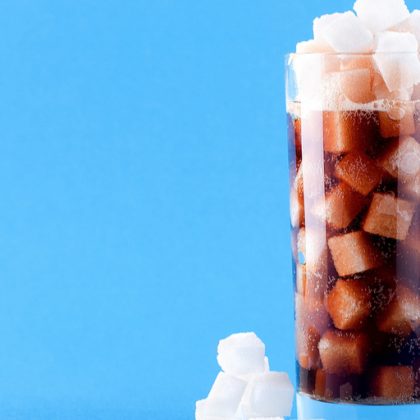The majority of parents believe sugary drinks are good for their children
Despite public health messages about the importance of reducing consumption of sugary drinks to help combat obesity and diabetes, a study in Public Health Nutrition written by the Rudd Center for Food Policy & Obesity at the University of Connecticut found that many parents believe that some drinks with high amounts of added sugar – especially fruit drinks, sports drinks and flavored water – are healthy options for children. Moreover, parents who think these drinks are healthy are significantly more likely to provide them to their children, the study found.
“Although parents know that soda is not good for children, many still believe that other sugary drinks are healthy options. The labeling and marketing for these products imply that they are nutritious, and these misperceptions may explain why so many parents buy them,” said Jennifer Harris, Ph.D., a study author and Director of Marketing Initiatives at the Rudd Center.
A diverse, national sample of 982 parents, each with at least one two- to 17-year-old child, completed the survey in 2011. The study found that 96 percent of parents surveyed gave sugary drinks to their child in the month prior to the survey, on average providing sugary drinks in three different categories. Fruit drinks and soda were provided most often – by 77 percent and 62 percent of the parents, respectively – followed by sports drinks, sweetened iced tea, and flavored water. Of note, 80 percent of parents provided fruit drinks, such as Capri Sun or Sunny D, to their preschool-age children.
The new study also examined potential misperceptions about the healthfulness of some sugary drinks as contributors to parents’ decisions to purchase the products for their children. Nearly half of the parents surveyed rated flavored water as healthy, and more than a quarter of the parents considered fruit drinks and sports drinks to be healthy. African-American and Hispanic parents were more likely than white parents to rate many sugary drinks as healthy. In addition, parents who reported purchasing a given category of sugary drinks were significantly more likely to rate that category as healthy, compared to parents who did not purchase any drinks from that category, the study found.
Importantly, parents were likely to rate the healthfulness of specific branded products differently than the products’ overall categories. For example, while only 30 percent of parents considered fruit drinks healthy, 43 percent rated Sunny D healthy and 36 percent rated Capri Sun fruit drinks healthy. Similarly, 56 percent of parents rated Vitamin Water healthy. Approximately one-third of parents indicated that ingredient claims that commonly appear on packaging for sugary drinks – including real or natural and vitamin C – are important in their decisions to purchase these products.
The recent report of the U.S. Dietary Guidelines Advisory Committee recommends limiting added sugar to 10 percent of total calories. However, children and teens consume more than twice the recommended amount of sugar. Previous research has shown that sugary drinks are the top source of added sugar in Americans’ diets, and that regularly consuming sugary drinks increases the likelihood of obesity and type 2 diabetes.
“This research demonstrates that public health efforts and messages to reduce consumption of sugary drinks should focus on fruit drinks, sports drinks and flavored water, as well as soda,” said Marlene Schwartz, Ph.D., a study author and Director of the Rudd Center. “These findings also highlight the need for increased attention on ingredient claims on product packaging and other marketing messages that may mislead parents to believe that some sugary drinks are healthful options for their children.”
Read the full article here until 11th April.






